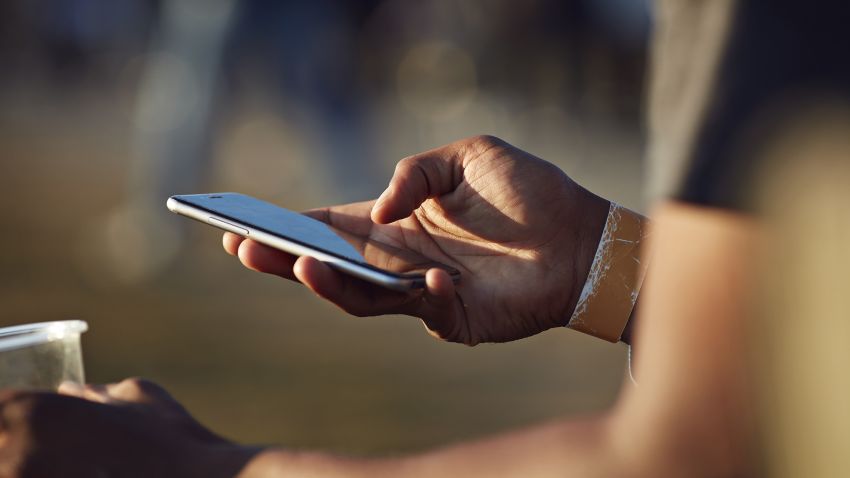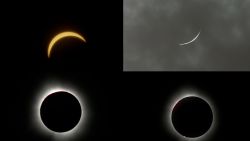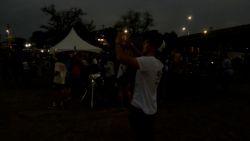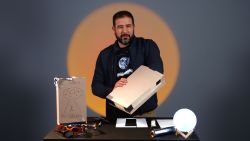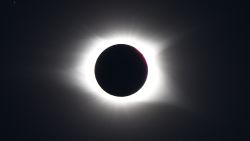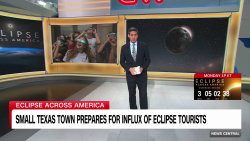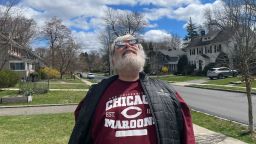As darkness envelops millions of people during Monday’s total solar eclipse, spectators will hold their cellphones skyward to capture the moment. But could the surge in cell usage cause networks to go dark?
Across city centers and rural towns, network providers and public officials say they are preparing for significant increases in traffic on cellular and Wi-Fi networks, as floods of eclipse tourists put pressure on the major providers that keep networks online.
The path of totality — where it’s possible to see the moon completely block the sun’s face — will draw thousands of tourists to states from Texas to Maine. Travelers will rely on the network infrastructure in those areas as they use social media, livestreams and video calls to commemorate their experience.
The eclipse itself has no effect on wireless networks. But the influx of tourists to cities and towns creates an environment similar to a football game or a concert in a crowded stadium — the larger the crowd, the more difficult it can be to find a cell connection.
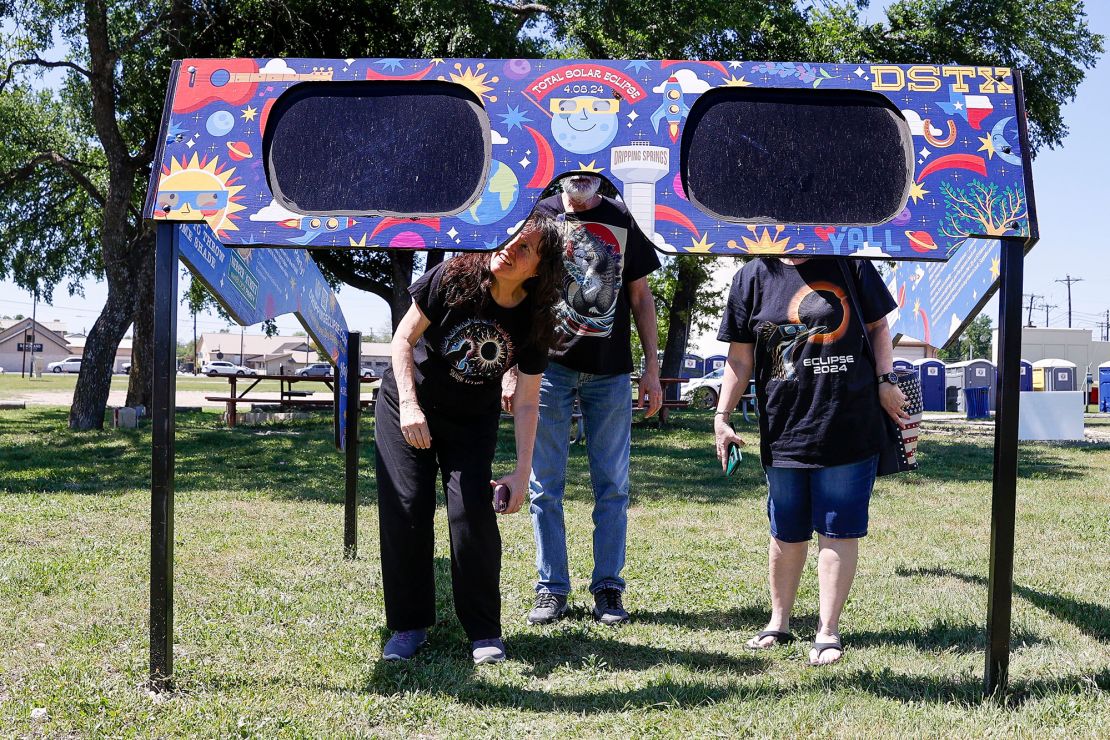
“Any location that’s in the center of the path of totality is going to see a significant increase in cellphone usage, particularly during the period and shortly after totality,” said Caty Pilachowski, a professor of astronomy at Indiana University, Bloomington, in an interview with CNN.
Bloomington, which last saw a total eclipse in 1869, will be in the path of totality on Monday and may host hundreds of thousands of visitors.
“An eclipse is very often seen as a shared activity,” Pilachowski said, noting that people will be taking pictures and videos and sharing those images with others.
Eclipsing cell networks?
AT&T anticipates an increase in network traffic as people “pick up their devices to capture and share content” during totality, according to a spokesperson for the company.
When the last total solar eclipse cut a path across America in 2017, AT&T reported network usage spikes up to 15% around certain cell towers in the path of totality. But the company, which experienced an outage affecting millions in February, says it’s ready for Monday. “The eclipse itself will have no direct operational impact on our wireless network,” an AT&T spokesperson wrote in an email.
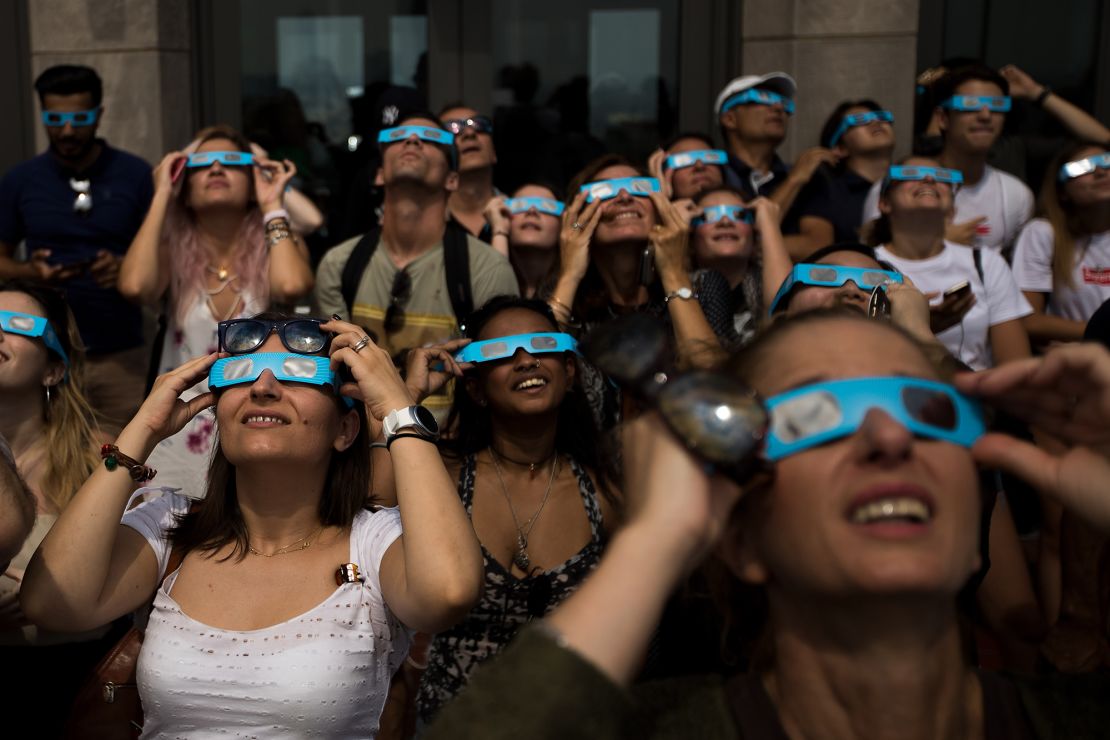
And other major providers such as Verizon and T-Mobile echo AT&T’s confidence ahead of Monday’s celestial spectacle.
“We do not expect any impact from the 2024 solar eclipse on the operation of our network,” Chris Serico, a spokesperson for Verizon, told CNN.
Verizon says it has developed its US infrastructure across the eclipse path in the past year. Serico said the wireless provider has built and activated 19 new cell sites in Niagara and Erie counties in New York — locations along the path of totality — since the start of 2023.
In Northeast Ohio, Verizon has activated 60 new cell sites in six counties positioned in the path of totality. In the Dallas area, Verizon has activated 375 new cell sites.
“In areas where people may gather to experience this event, we’re confident the additional capacity we’ve layered into the network over the past few years will accommodate any increases in data usage,” Serico said.
T-Mobile says it’s also deploying extra temporary cell sites that will be on stand-by in areas expecting high tourist traffic. These portable sites — cellular on wheels — are called COWs for short.
Major cell providers also benefit from the innovation of 5G since the last eclipse. AT&T has expanded its 5G network to reach more than 295 million people in up to 24,500 cities and towns cross the US.
“All 5G launches and upgrades have been layered into our network since the last solar eclipse stretched across the United States in 2017,” Verizon’s Serico said.
Preparing for the eclipse
In New York, which will experience its first total eclipse in nearly a century, state and local governments say they have coordinated with wireless providers for more than a year to prepare for the event.
“The carriers are aware of the influx of people expected to visit New York for this event and they have conducted site audits and evaluated coverage maps,” said Heather Groll, a spokesperson for the New York State Division of Homeland Security and Emergency Services, in an email.
Nonetheless, officials expect large influxes of visitors: Buffalo, NY, could see up to 1 million tourists, and Rochester, NY, is expecting between 300,000 and 500,000, according to Groll. This means people in those areas may experience standard disruptions to service.
“Visitors and New Yorkers alike should expect that there will be limited coverage in places where there are large gatherings and plan accordingly,” Groll wrote in an email.
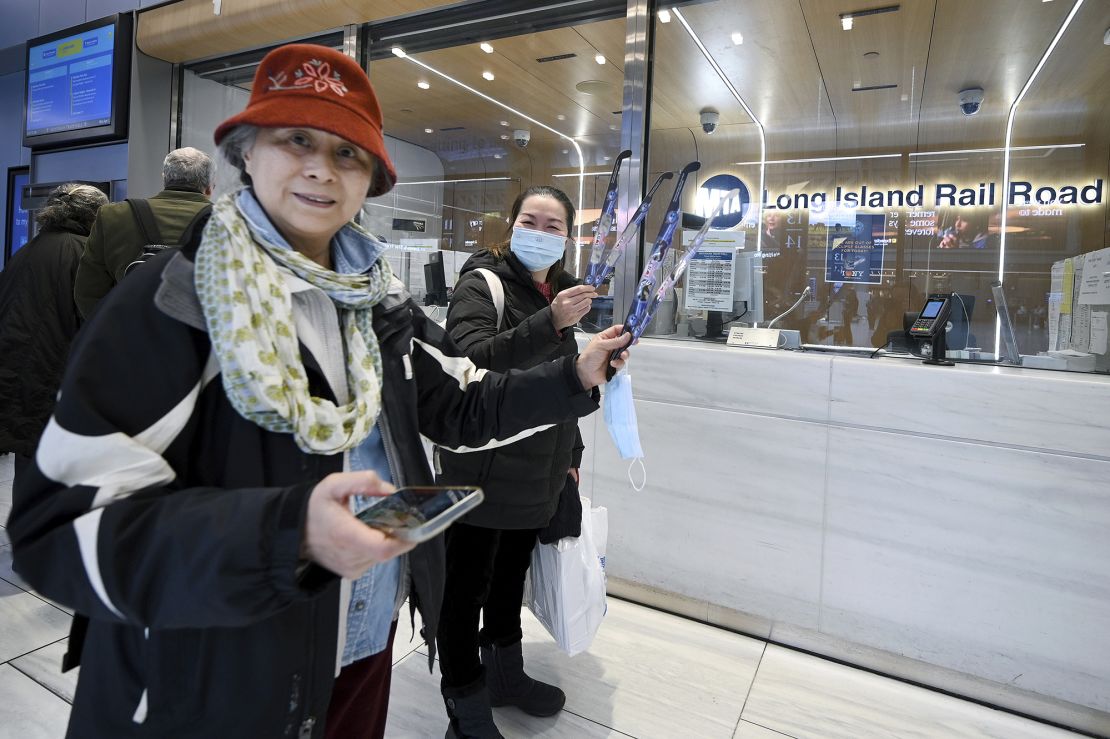
While some cities can expect disruption, it all depends on the number of people using a tower and the area’s specific capacity, according to Lisa Winter, a program scientist at NASA.
“It may be difficult in a crowded area if many people are using the same towers,” Winter said in an email.
Bloomington has coordinated with service providers to deploy COWs in low coverage areas, said Rick Dietz, director of the city’s Information & Technology Services Department, in an email.
He said providers are indicating regular calls should go through, but data services may be strained or unavailable.
In Little Rock, Arkansas, city officials say they are not concerned about disruptions to cell service.
“We know that state and federal government have allocated resources primarily for rural areas of the State that may have limited cell network access,” Little Rock spokesperson Aaron Sadler said in an email. “The City of Little Rock does not have the same coverage concerns and we are hopeful there are no network issues next week.”
Tips for the eclipse
People traveling to see the eclipse should plan accordingly, including downloading maps and directions beforehand to have with them offline, in case of poor connection.
Whether on your phone or not, most important, Pilachowski said, is to the enjoy the experience.
“A total eclipse of the sun is unlike any other experience that a human being can have. It is so profound in giving us this connection to not just nature, but the universe,” she said. “We’re connected to the sun and the moon and a whole broad universe in a way that we don’t normally experience. And so it’s a profound moment that we want everyone to feel and to share.”

